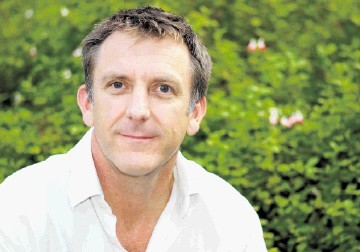
ITF, the Aberdeen-based technology facilitator for the upstream industry, has been involved in facilitating support for the development and implementation of a novel safety programme for construction supervisors in Australia.
Development of the Safe Supervisor Competence Programme (SSCP) was managed by Perth WA-based health, safety and environmental consultancy An Meá.
At the end of September, APPEA (the Australian Petroleum Production & Exploration Association) approved a proposal to take on ownership of the programme and make it available to every supervisor in the Australian upstream oil and gas industry.
Steve Williams, MD at An Meá, and Western Australian vocational education and training expert Alf Standen were initially asked to investigate the link between safety performance and the competence of supervisors by Offshore Project Safe, a coalition of oil and gas industry operators and their contractors engaged in offshore construction in Australia.
The resultant “white” paper explored the case for improving safety by developing and implementing an assessment and assurance process to ensure that offshore oil and gas construction supervisors working in Australian waters meet competence requirements that will be universally accepted by all industry players.
The paper highlighted important issues and training needs within the industry and a consortium of oil and gas companies then agreed to take up and fund its recommendations.
Williams said: “Statistics indicated that Australia lagged behind other parts of the world with respect to safety in offshore oil and gas construction. Supervisors are a critical interface in communicating safety messages and attitudes to the offshore workforce.
“Their contribution is key to improving offshore safety. However, supervisors have often been recruited on the basis of their technical skills rather than their people management experience.
“The situation is compounded by the fact that there is typically a high turnover in the offshore oil and gas construction workforce. Staff regularly change employers as projects come and go.
“Implementing an industry standard for supervisor competency therefore has clear benefits with respect to introducing a consistent level of skills amongst this mobile workforce and improving long term safety performance.”
The industry funding enabled An Meá to convene a technical reference group comprised of experienced supervisors, behavioural psychologists, safety specialists, and learning and development professionals who developed competence standards, a governance and assurance process, and an assessment scheme.
Implementation of the programme is now underway and 145 supervisors have completed training conducted by industry-approved providers.
Thus far, 54 of these supervisors have completed the workplace assessment component of the program and as such, they now hold SSCP cards recognising that they meet an industry agreed standard of competence as supervisors.
ITF’s technology team leader David Riddell told Energy: “We have recently established regional cluster groups that allow its members to focus on issues that are of greater interest in specific geographical areas.
“The Australia cluster was the first to be established, and we have already seen some exciting initiatives in the region which have led to a number of projects, such as the An Meá one, being successfully developed.
“The value and success of the SSCP programme is underlined by APPEA’s decision to roll it out to other sectors of the upstream industry in Australia, and I’m very pleased that ITF was involved in the facilitation of support for this important work.”
For more information about the programme visit www.safesupervisor.com.au
Recommended for you
